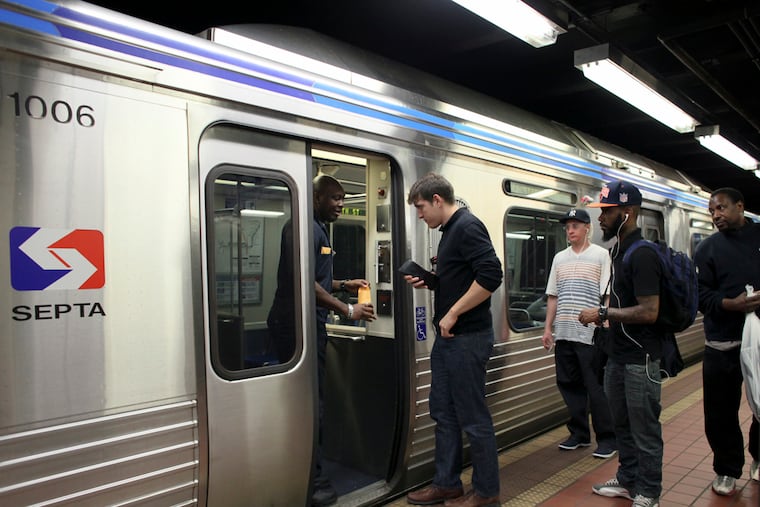Labor, health-care costs boost SEPTA budget
Rising labor and health-care costs are the biggest drivers of a 2.84 percent increase in SEPTA's operating budget proposed for the financial year that starts July 1.

Rising labor and health-care costs are the biggest drivers of a 2.84 percent increase in SEPTA's operating budget proposed for the financial year that starts July 1.
The $1.36 billion budget calls for 70 more employees - mostly in safety and construction-support positions - and would make permanent the all-night subway service on Fridays and Saturdays that began as an experiment this year.
The budget assumes no fare increases. It anticipates a state subsidy of $658 million, up by $29 million from this year's spending plan.
Hearings on the proposed budget are scheduled for next month in Philadelphia and the four suburban Pennsylvania counties.
The proposed budget, up from the current $1.33 billion budget, includes a planned increase in the workforce from 9,534 employees to 9,604.
The budget assumes a 5 percent increase in labor costs, including wages and benefits. That $48.3 million increase makes up about 70 percent of the budget hike for fiscal 2016, which starts July 1.
SEPTA has reached labor agreements with 10 of the 17 unions representing its workers, including 86 percent of the union workforce. Those workers got 2 percent raises in December and are scheduled to receive 3 percent increases next December, chief financial officer Richard Burnfield said.
Health-care costs are up 6 percent, and costs for workers' prescription-drug costs are up 12 percent. Burnfield said much of that increase is related to the steep costs of one medication, Sovaldi, used to treat hepatitis C.
In December, SEPTA filed a class-action lawsuit against drugmaker Gilead over the cost of Sovaldi. A three-month regimen for a patient costs about $84,000, and SEPTA said in December that it had spent more than $2 million on the drug.
Hearings on the proposed operating budget will be held in each of the five Southeastern Pennsylvania counties:
Bucks County: April 20, 2 and 6 p.m., Bucks County Free Library, 150 S. Pine St., Doylestown.
Philadelphia: April 21, 11 a.m. and 5 p.m., SEPTA Headquarters board room, 1234 Market St.
Delaware County: April 22, 2 and 6 p.m., Delaware County Courthouse, 201 W. Front St., Media.
Montgomery County: April 23, 2 and 6 p.m., Montgomery County Human Services Center, 1430 DeKalb Pike, Norristown.
Chester County: April 24, 2 and 6 p.m., West Chester Borough Hall, 401 E. Gay St.
The operating budget will be posted Friday on SEPTA's website at septa.org/reports/
215-854-4587
@nussbaumpaul